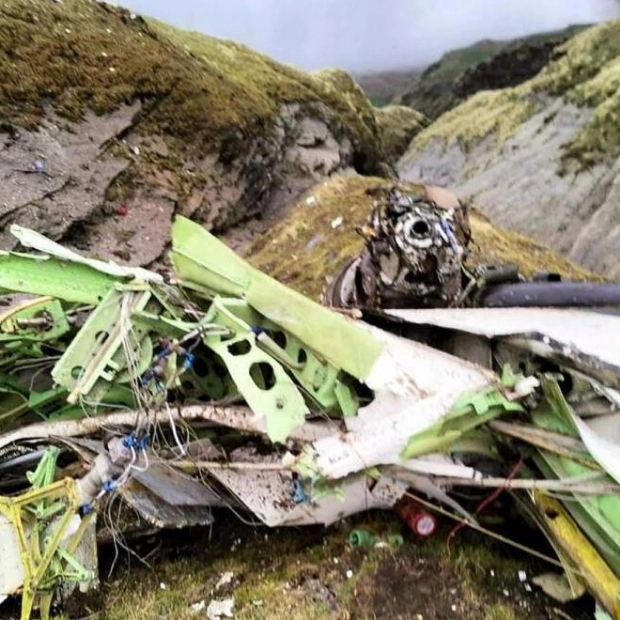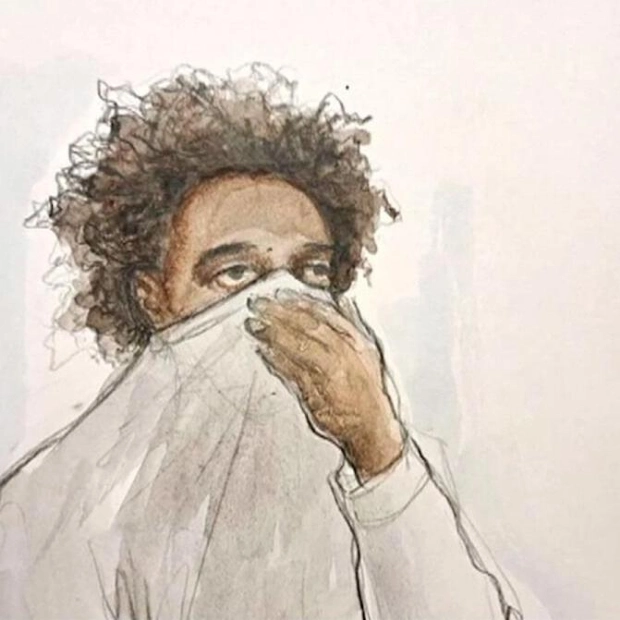A Fir Cone Mushroom (Strobilurus trullisatus) discovered during a mushroom biodiversity survey near Port Angeles, Washington, on October 17, 2024. — AFP
In the forests of the United States, it's nearly impossible to walk far without encountering a mushroom, a manifestation of a vast fungal kingdom that sustains all life, yet remains largely mysterious to us. Some mushrooms are tall and slender with a helmet-like cap, others resemble intricate brain patterns; some appear as if they belong in a fairy tale, sheltering tiny creatures. Many look delectable in the hands of a skilled chef, while others are clearly not for consumption. However, the dozens of species collected by enthusiasts and experts on a recent morning represent only a fraction of the life that is neither flora nor fauna.
"Mushrooms are not plants," explained Amy Honan, a mycology and fungal ecology instructor at Oregon State University. "Fungi are more closely related to animals than to plants." While plants produce their own food through photosynthesis, mushrooms must consume other substances. "They secrete various enzymes to break down their food externally, then absorb it like a smoothie," Honan described. Of the estimated 2.5 million fungal species on Earth, scientists have documented around 150,000—just six percent. Compared to our knowledge of plants and animals, this is a mere drop in the bucket.
"We know about 98 percent of the vertebrates on the planet, 85 percent of plants, and 20 percent of invertebrates," she noted. This lack of knowledge about fungi is concerning due to their crucial, albeit hidden, roles. Fungi predate plants and facilitated their transition from sea to land. "Fungi are essential for terrestrial ecosystems, providing benefits like salt and heavy metal tolerance, and disease resistance to plants," Honan said. "Without fungi, plants would not exist, and neither would the world as we know it. It would be filled with decaying matter." Fungi decompose all dead organic material, recycling carbon and other nutrients, thereby supporting the life cycles of plants and animals.
There is growing recognition of the importance of fungi, with their role set to be discussed at the UN Convention on Biological Diversity COP16 in Colombia, starting on Monday. The Guardian reported last week that a joint proposal by Chile and the UK could lead to fungi being recognized as an independent kingdom of life in legislation, policies, and agreements, aimed at advancing their conservation and ensuring their benefits to ecosystems and people. Greater protections would be welcome, according to mycologist Graham Steinruck, who, along with Honan, is studying fungal biodiversity at a site that was underwater until a dam was removed a few years ago.
As part of the Olympic Peninsula Fungi Festival, Steinruck and Honan have guided participants in the field, teaching them how to identify and document mushroom species. "The more fungi we discover and document, the better we can understand and manage our land," Steinruck said. Knowledge of these enigmatic organisms could also benefit various aspects of human life. Mushrooms could help us "heal ourselves and potentially support industries," he added. For participants in the mushroom hunt, the experience was enlightening. Naomi Ruelle, who traveled from New York with her mushroom-loving partner, participated in her first organized hunt. "I've learned so much," she said, displaying a collection that included a large, fleshy shelf-like specimen, yellow parasol-style mushrooms, and slender fungi rooted in a dead pine cone. "It was fascinating to see the different species. I'm eager to learn more about them in the lab."
Source link: https://www.khaleejtimes.com






